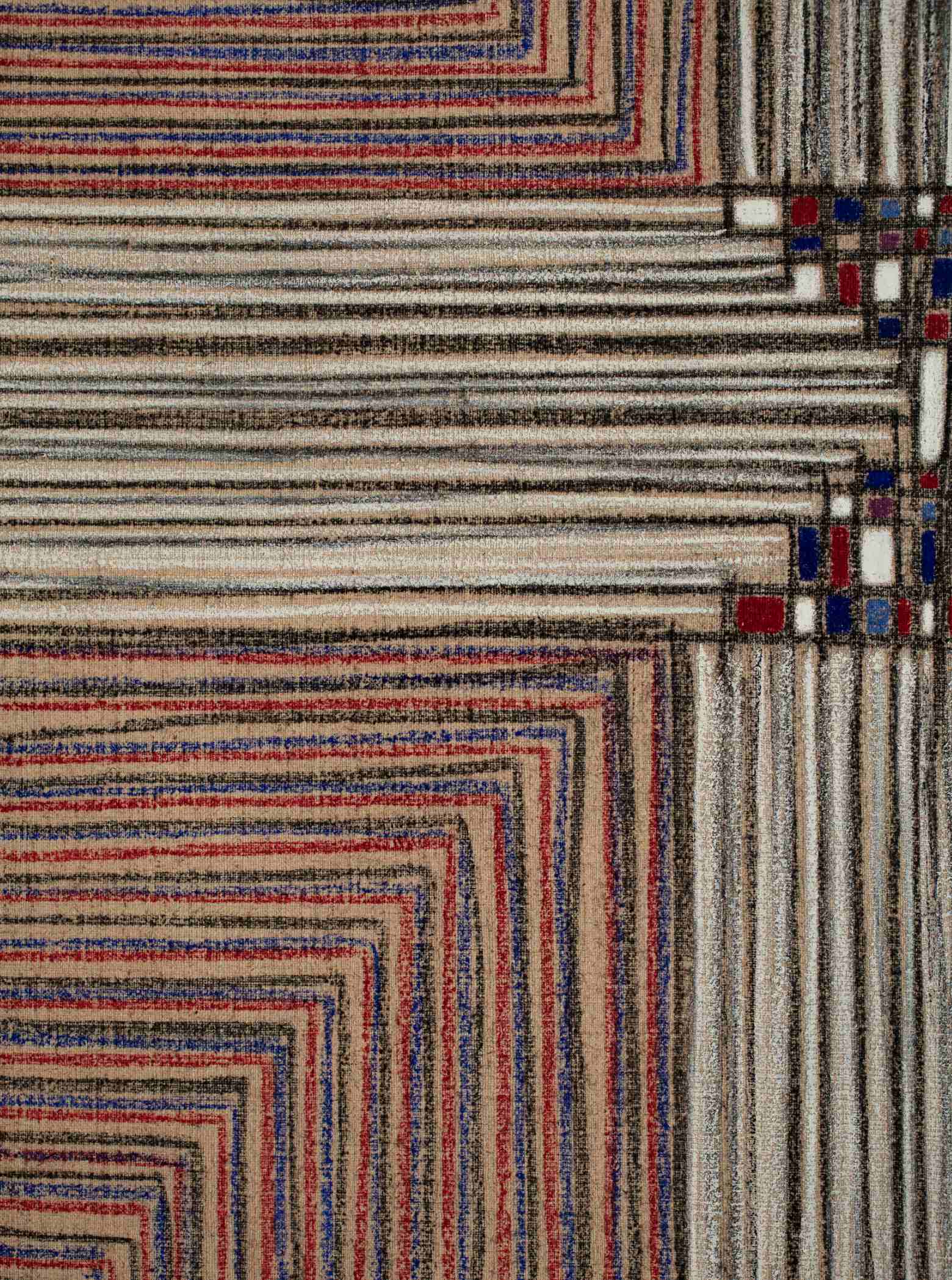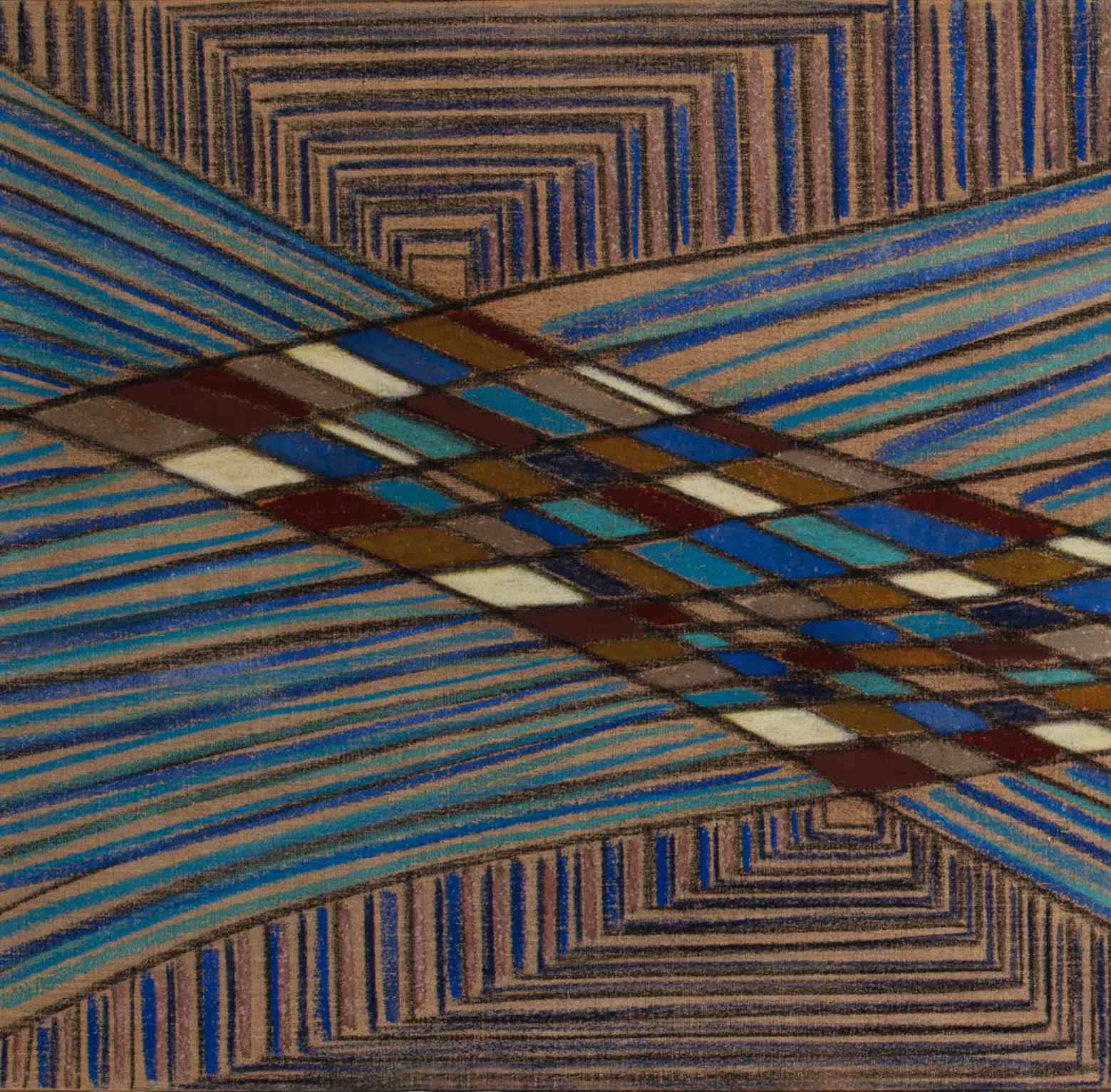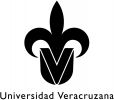Myra Landau
galleries 1 & 2
Sensitive Geometry
Although Myra Landau’s work is substantial to the development of geometric abstraction in the second half of the twentieth century, her work is little known. This retrospective responds to the urgency to not only investigate and give visibility to female artists who have been left out of the hegemonic historiographic discourse, but also to understand their contributions to the history of geometric abstraction, particularly sensitive geometry, an approach that has been excluded by the art canon in Mexico.

Of Romanian origin, Landau was a wandering artist who fled from Nazi persecution and antisemitic regimes in 1940, when she was 14 years old. After spending a season in Paris, Coimbra and Lisbon, she and her family immigrated to Río de Janeiro. In the early 1960’s, she settled in Mexico, where she actively participated in the national art scene over the course of three decades—a time in which the abstract movement was fighting for its place. In 1974, she started working at the Facultad de Bellas Artes at the Universidad Veracruzana, later becoming a research professor at its Instituto de Estética y Creación Artística.
Since her arrival to our country, Landau was a pioneer by introducing a new materiality and revalorizing engravings, as well as in her use of pastels on unprepared linen canvases. During this time, she also developed her emblematic series Rhythms, with which she made her incursion into sensitive geometric abstraction, revealing the influence of Brazilian geometrism. By intervening the canvas directly with pastels, Landau produced a texture that harmonized with the freehand lines of her intertwined, concentric rectangles. The result is a pattern that recalls traditional textiles, staves and labyrinths.

The title of this exhibition refers to the notion used by the Brazilian critic Roberto Pontual for the 1978 collective exhibition Geometria sensível to describe a form of geometric abstraction that stands apart from the hard lines and rigorous rhythms often associated with rationality. Sensitive geometry embraces the gestural lines and a freer character, in counterpoint to pure abstraction and cold brushstrokes. This exhibition presents Myra Landau’s work since her arrival in Mexico, covering over 50 years of artistic production that includes paintings, drawings, textiles and a wide selection of artist’s books made using drawings and collage, which reveal Myra’s passion for writing and poetry.
Artist: Myra Landau (Bucharest, Romania, 1926–Alkmaar, Netherlands, 2018)
Curation: Pilar García
National Visual Arts Production made possible by the fiscal incentive established in article 190 of the income Tax Law (EFIARTES).
Publicación
Publication
Myra Landau. Sensitive Geometry
Authors : Dawn Ades, Cecilia Fajardo-Hill, Pilar García
Language : Spanish & English
Editor: MUAC, UNAM
Price: $400









